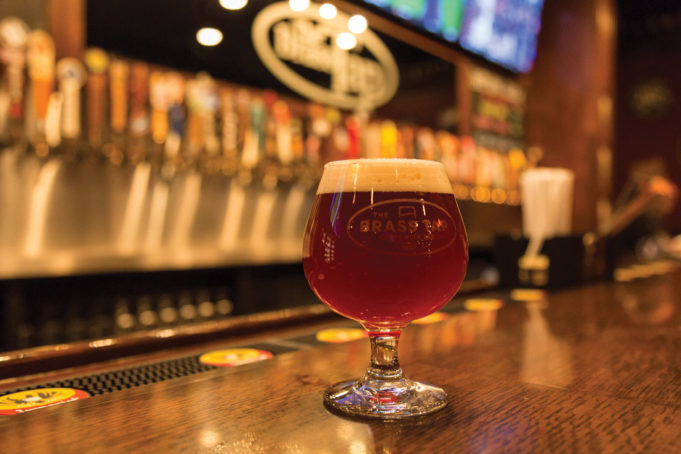Breweries and bars typically bear little physical resemblance. Most craft breweries offer outdoor seating and sprawling indoor spaces. To brew beer generally requires a lot of room, so most breweries inhabit large facilities. For those and other reasons, the Texas Craft Brewers Guild recently said in a public statement that it is tired of being lumped in with a handful of “rowdy, reckless bars” during the COVID-19 pandemic.
The Texas Alcoholic Beverage Commission (TABC) has suspended the licenses of seven Texas bars (including one 50 miles east of Dallas) after they failed to close last Friday following an executive order by Gov. Greg Abbott. The restrictions, according to the governor, were needed to slow record numbers of COVID-19 cases in the Lone Star State.
The brewers’ guild noted that its breweries had already adopted “all of the health and safety policies laid out in the governor’s own Open Texas plan, including reduced capacity limits, spacing tables 6 feet apart, staff wellness checks, and aggressive cleaning and disinfecting regimens.”
The statement noted that the governor has not displayed concerns about proximity during political rallies that he supports. One example was last Sunday’s Celebrate Freedom Rally in Dallas that the governor and other elected officials attended. Despite warnings by the Centers for Disease Control and Prevention (CDC) that singers could be super-spreaders, around 100 performers in a choir sang without wearing masks.
Breweries are being pummeled, the statement said. The guild represents 250 members, which includes 64 North Texas breweries.
“The mathematics worked in our favor,” Samantha Jo Glenn said, referring to how her Near Southside brewpub, Funky Picnic Brewery & Café, was able to skirt Abbott’s order. “We sell enough food that we weren’t shut down. I feel for everyone else. The atmosphere of breweries is different than bars. You are paying a higher premium to enjoy beer rather than just trying to get drunk. Breweries are often not open as late as bars. It brings a different crowd. The breweries that I saw were complying with social distancing guidelines.”
Glenn said the TABC’s definition that bars must earn 51% of revenue from alcohol to qualify as bars does not acknowledge the nuanced differences of restaurants, bars, breweries, and cigar lounges.
The guild, in its statement, goes on to say, “The first time breweries were shut down, we asked the governor to grant our members the temporary ability to deliver and ship beer directly to customers to provide another outlet for Texans to get locally made beer while limiting person-to-person contact. Our 18,000-signature petition was ignored. We asked for a temporary suspension of TABC’s excise taxes,” the government tax that is levied on beer after sales taxes.
Those requests were also ignored, the statement said.
“Our industry has received no state-level assistance, and now, with the governor’s latest decision, forgiveness for the only assistance some small businesses have received, the federal paycheck protection program, is in jeopardy,” the guild said.
To qualify for federal loan forgiveness, businesses must either retain employees or be willing to hire them back. The guild offered one way forward: buy local beer.
“Texans, if you want your local breweries to still be in business on the other side of this second shutdown, please continue to vote with your dollar and buy local, small, and independent beer. It’s the only way most craft breweries will even have a fighting chance.”












